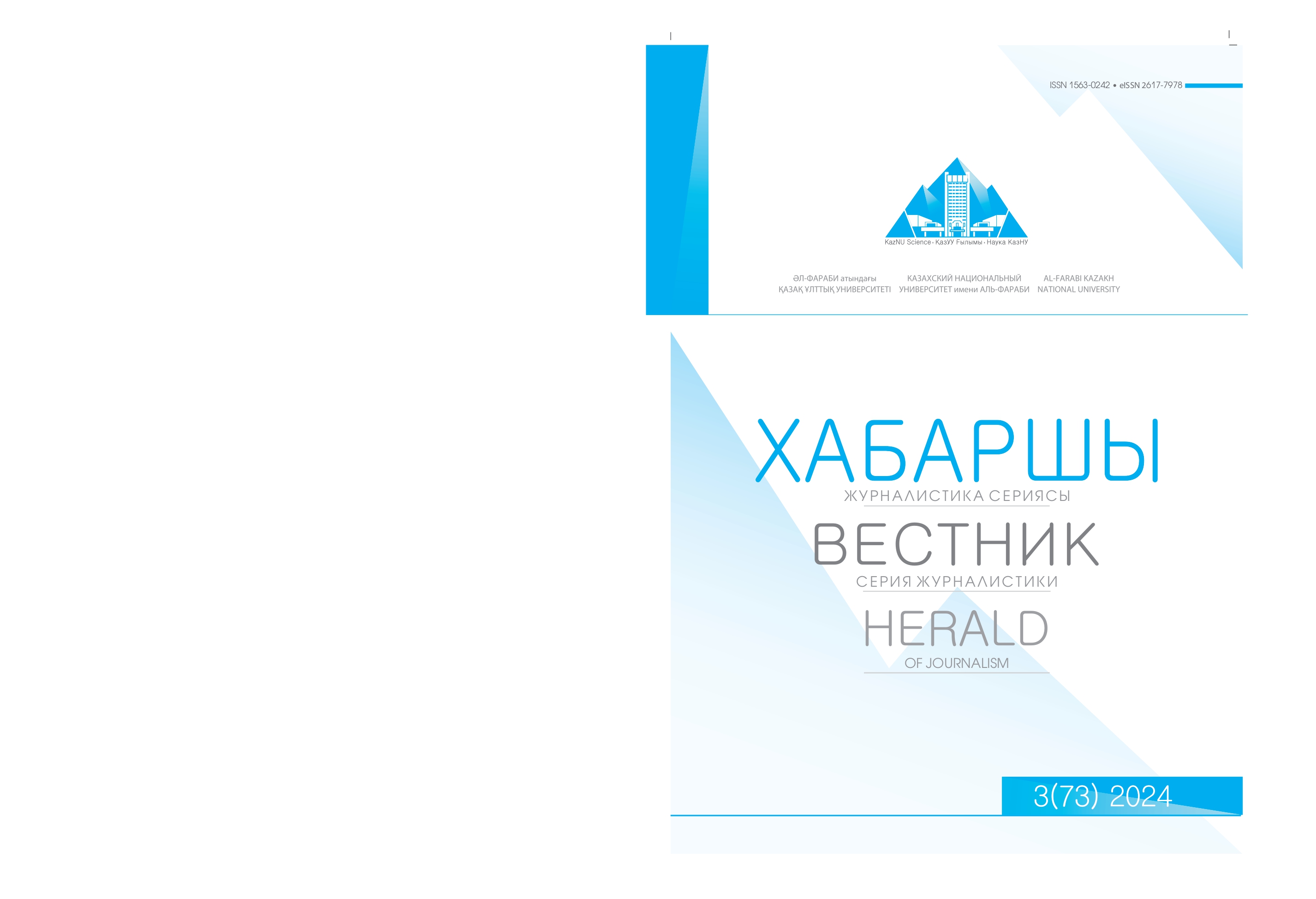Changes in the Reading Culture of Young People and Features of Kazakh Language Usage in the New Communication Environment
DOI:
https://doi.org/10.26577/HJ.2024.v73.i3.08Keywords:
new era, reading culture, media language, youth, book reading, digital communication.Abstract
The article examines changes in the reading culture of young people and the features of using the Kazakh language in the modern communication environment. The study analyzes changes in young people’s reading habits resulting from technological innovation and their preference for digital content over traditional media such as print, television and radio.
In the context of a constantly changing media environment and the influence of new trends on the lexical richness of the language, the article provides a comprehensive analysis of the features of the use of the Kazakh language by young people. It reveals how social networks, digital platforms and mobile applications have transformed the way young people read and interact with information. The study also considers the attitude of the younger generation, who are adapting to new communication technolo- gies, towards the preservation of linguistic heritage, as well as the role of the Kazakh language in digital media.
Based on a specially conducted social study, the authors identified the main trends related to the Based on a specially conducted social study, the authors identified the main trends related to the themes and content of books preferred by young people, and their connection with the technological era. The study’s key findings showed that the degree of use of the Kazakh language in the new media environment depends on the rapidly changing media landscape and the interaction of the language with digital media in Kazakhstan.
The purpose of this study is to provide a comprehensive understanding of the influence of processes in the global information space on the culture of reading and language use among Kazakh youth. Key findings indicate a significant shift among young people towards digital reading and highlight the need for strategies that support the integration of the Kazakh language into modern communication platforms. The final conclusions of the study state that, under the influence of technological advancements,
the reading culture of young people has declined, and the proportion of young people reading books in Kazakh is smaller compared to those preferring to read in Russian. The authors also developed recom- mendations to address the lack of scientific literature in the Kazakh language.













